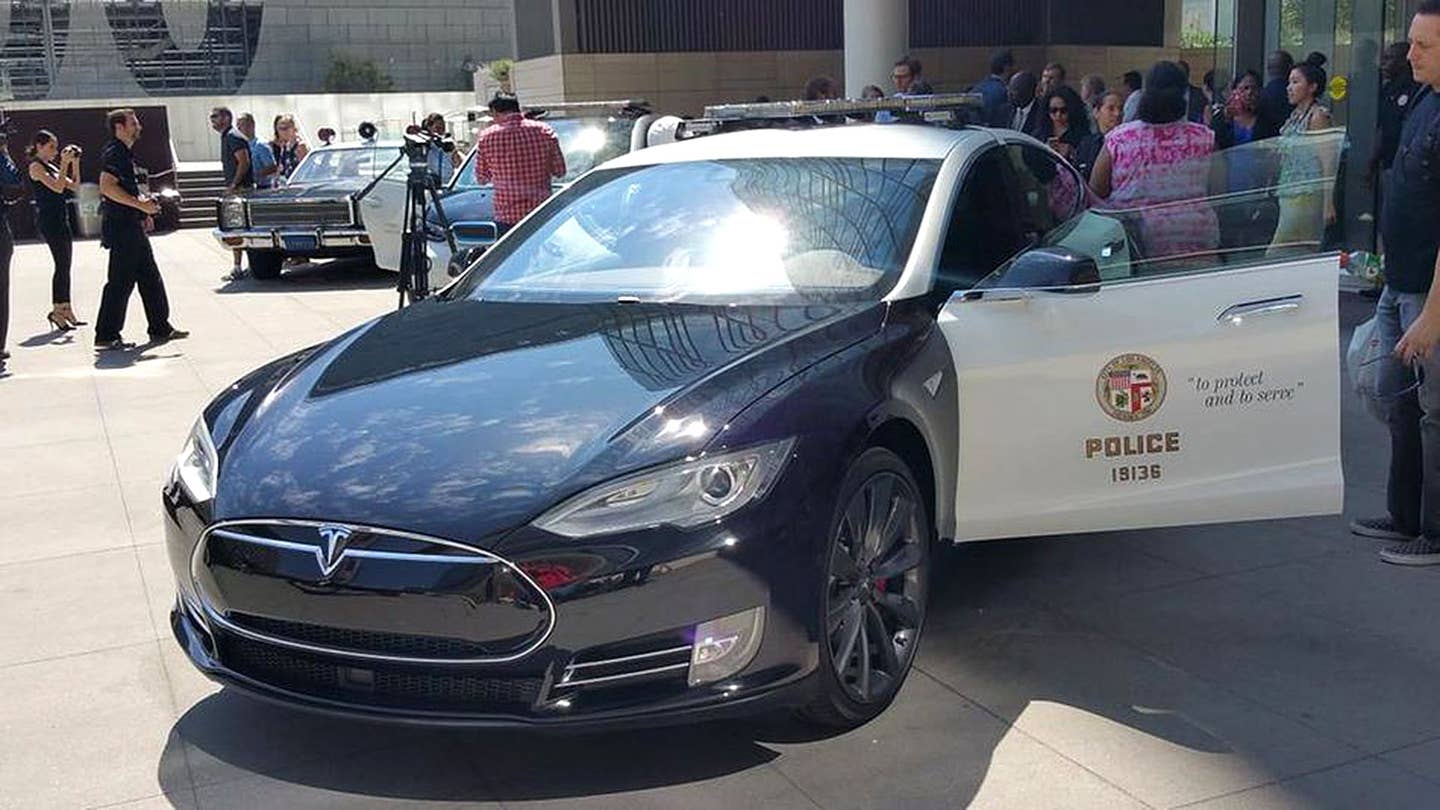LAPD Experimenting with Tesla Model S Cop Cars
Department considering the EVs for the role of hot pursuit interceptor, among others.

The Los Angeles Police Department is conducting a field test to see how well the Tesla Model S conducts itself as a police car. The test has been going on for almost a year now and is designed to see how well the electric cars function in various roles within the department's fleet—including how well it would play the part of pursuit interceptor.
According to CNBC, LAPD Police Administrator Vartan Yegiyan said Tesla loaned the vehicles in order to help the department "assess the vehicle's performance in our environment and to learn what are the drawbacks and positives of this type of vehicle in our fleet operation. Not only on the regular transportation side, but also the future in the high-pursuit-rated vehicle arena."
But the odds of seeing LAPD highway patrol officers using Ludicrous Mode to catch speeding scofflaws are slim, as the department currently only has two Teslas operating within its fleet. They are both P85 D models, however, so they could theoretically be outfitted with the acceleration upgrade—if the City of Los Angeles felt like parting with the $5,000 needed to upgrade the vehicles. (Tesla might throw the feature in for free on the demo cars, but we doubt it would do so for an actual order.)
Which is indicative of one of the biggest problems with using Teslas as cop cars: They're pricey. As anyone who's ever played around with the online configurator on Tesla's website knows, top-shelf Performance models currently sell for more than $100,000—and that's before adding the cool options like Ludicrous Mode and Autopilot. Even an entry-level Model S starts at $76,500—far above the $45,000–$50,000 cost of a fully-equipped Ford Police Interceptor.
Other potential hiccups include long recharging times and inadequate infrastructure to keep the electric cars ready for operation. "Is it practical now? No," Yegiyan said. But in the next three to five years, he says, he expects electric vehicles to become an increasingly feasible option for police departments. "More models will be coming out, and the electricity and electrical grid will become more robust, and more charging stations will be available," he said.
In the meantime, the nation's third-largest municipal police department will continue playing around with electric cars to sort out strengths and identify weaknesses. The department is also currently testing the BMW i3—though, presumably, the 170-horsepower electric hatchback is not being groomed for the role of high-speed traffic interceptor.
